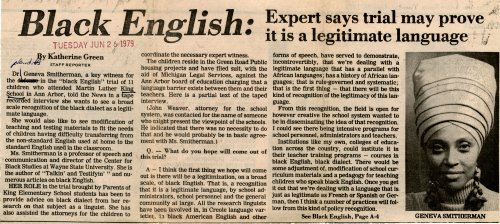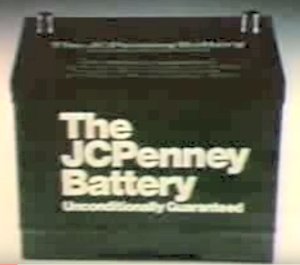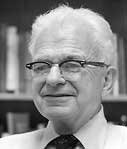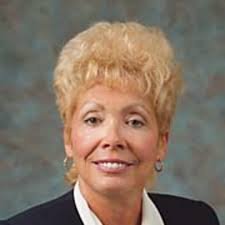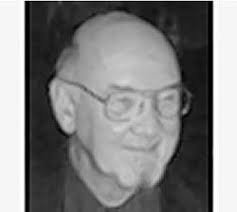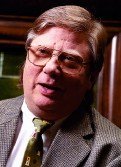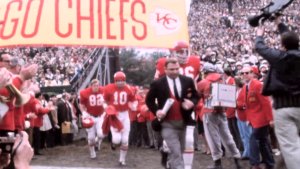I bes a speech teacher. Continue reading
I had no doubt that the speech department at Wayne State would be much different from the corresponding department at U-M, but I underestimated the degree of difference. Undergraduate students in many disciplines at Wayne State were required to take Speech 100, the introductory public speaking class. So, there was a large number of sections every semester, even in the summer. There were also fewer graduate students than at U-M. Consequently almost every graduate student in speech taught Speech 100. Many taught two or even three sections.
The makeup of the student body was also quite different. Almost no one at U-M commuted; almost everyone at Wayne did. Admission requirements at U-M were pretty high; at Wayne there were special programs for students who could not meet much lower standards. Nobody attended Wayne State in order to prepare for a career in the NBA or NFL but Wayne did have a good fencing team.
Before the first class in September 1977 the department chairman, Edward Pappas1, held a mandatory briefing for all the first-time speech teachers. The emphasis of his presentation was to warn everyone that it was department’s strict policy NOT to correct grammar or spelling discrepancies‐I am quite certain that he avoided the words “mistake” and “error”. I soon learned that this policy was heavily influenced by one professor, Geneva Smitherman, who had a national reputation as a proponent of Black English as a legitimate dialect of American English.
This made it a little difficult to teach public speaking. One of the few tenets with which everyone concurs is that an effective speaker always adapts to the audience. If most of the target audience does not understand the dialect in which the speech is given, it is difficult to be effective. In Italy, for example, a speech given in Milan in the Neapolitan dialect would be understood by far fewer people than one given in English or German. The dialect is so different from standard Italian that Italians who move to Naples struggle to learn it. Almost no Italian knows two dialects. Public speeches are always in Italian.
In the very first class I always told students how I would calculate the final grades. Everyone was required to give four speeches, which counted for 15 percent each. The midterm exam, which consisted of short-answer questions (not multiple-choice), counted 10 percent. The final exam, also short answers, counted 25 percent. Each class started with a five-question quiz, the last of which was always an obscure trivia question. The quizzes and class participation together counted for 5 percent. I also offered extra credit to students who submitted an essay related to one of the topics covered in class. Only one student ever took advantage of this.
Some students did not notice important aspects of this, and so I emphasized them. Skipping any speech costs a grade and a half, more even than skipping the midterm. Also, the quizzes did not really count at all.
The prospect of tests that were not multiple-choice terrified some students. However, I always handed out a list of concepts and assured them that if they could give an example of each one, they would do well on the tests. I had one student who stumped me. She asked me after the class what I meant by “give an example.” I realized after a few minutes of probing that she really did not understand the concept of example. I did not know what to say. The word “example” to me is granular—I don’t know any way to explain it without using examples.
During my time at Wayne State the required textbook for the Speech 100 class was written by one of the professors, Ray Ross. After three years I had it pretty well memorized. I only mention this because one of my most memorable moments came at the very end of my college teaching career. In this case, the class was Speech 200 (Persuasion), which I preferred over the introductory class. We did not use the Speech 100 book.
In the very last class that I taught, a student named Irma was quite a bit older than most of the others. She had informed me that this was the only class that she was taking that semester. She had expected to get her degree (in education) in the spring, but the university had disallowed credits that she thought she earned when she took Speech 100 the second time. Evidently it never occurred to her that students cannot get credit twice for the same class.
One day there was a thunderstorm. I drove into school as usual. It was annoying to walk through the rain from my parking place to Manoogian, but I had done it in worse weather. A little after I arrived, I got a call from Sue. She said that Irma had called to find out if class had been canceled. She told Sue that she was sure that God had sent the storm to warn us not to have class. She was serious.
Irma did badly on both tests. Her speeches were only OK. I planned to give her a C. However, Irma turned in a paper for extra credit. It took me no more than a minute or two to realize that she had just copied one of the chapters from the Speech 100 textbook, the one book in the Library of Congress that every teacher in the department was almost certainly familiar with.
I thought about changing her grade to an F and contacting the dean’s office about her plagiarism. However, there would certainly be a hearing, and by that time I would be in Connecticut. So, I just gave her a C with no credit for the paper.
Believe it or not, she came to my office as I was packing up my stuff to leave forever to complain about her final grade. I told her that her grade was much closer to a D than a B. She told me that she spent a lot of time on that paper. I said that I knew that she had just copied it from the Speech 100 textbook. She admitted as much, but she insisted that she should be rewarded for her time. Needless to say, she had not learned too much about the techniques of persuasion for an audience of one.
One pair of students in Speech 100 evidently did not realize that the midterms would not be multiple choice. I knew that plenty of college students cheated on tests. I never did, and I was determined to make it extremely difficult to cheat on my tests. The classroom was wide, but shallow. I was sitting about twenty feet from them, and I could clearly see that they were copying off of each other. I did not say anything. When I graded their papers, both of their scores were in the thirties, and the next lowest score was in the sixties. They both dropped the class.
The first assignment in every Speech 100 class was to give a 1-2 minute speech introducing yourself to the class. In the first session after I explained the grading I would tell everyone about this assignment, which they would be expected to do in the second class. I then listed some of the things they might want to include. At the end, I asked for a volunteer to go first.
One time I forgot to recruit the first speaker. I felt bad about this, because people with stage fright might be very anxious that they would be called first. There was nothing that I could do other than ask at the start the second session for a volunteer to give the first speech. One student immediately raised his hand, went to the front of the class, and began his speech. It was something like the following;
Good afternoon. My name is William Robinson. I went to Mumford High School where I was on the track team. I am going to Wayne State University to study pre-law so that I can then go to Law School at Wayne State University to become a lawyer. Then I’m going to be a judge, so I can tell Whitey what to do. Thank you.
William gave all of his speeches, some of which were pretty good. However, he got the lowest grade on the midterm that I had ever seen, and he did not show up for the final exam. I had to give him an F.
On the other hand, one very diligent student had scores on the speeches and the midterms that were good enough that she only needed a low C on the final for an A in the course. She came to my office to tell me that about an opportunity she had to go to Hawaii. In order to take advantage of it, she needed to take the final in my class a few days early. She meekly asked me if that might be possible. I agreed. Just to be safe, the test that I gave her was from a previous year. She got a higher score than anyone who had taken it the first time that I administered it. I gave a different test to her class.
Debaters who took my Speech 100 class found it embarrassingly easy because I outlined what I was looking for in each speech, and I provided a list what to study for the tests. A debater had sniggered when he overheard me say that most of my students were afraid of me. However, after he had been in my class for a few weeks he reported back to me that I was right about that, but he could not understand why they were so intimidated.
A fellow who performed individual events (IE) also took my class. He skipped one of the speeches and never made it up. I gave him a C, and he hated me for it. He also borrowed a novel from me and never returned it.
Most of my amazing stories come from the university’s special programs. Project 350 was an admirable effort to aid students from the Detroit Public Schools who lacked one of the three requirements—test scores, grade point average, or teacher rating. 350 of these applicants were admitted conditionally for the summer semester. They took two or three classes, one of which was Speech 100. I taught these classes all three summers. I found that about 1/3 of the students had no business in college, 1/3 were questionable, and 1/3 were likely to do OK in college.
I tried to follow the department’s policies on correcting spelling and grammar. However, I was dumbfounded by one fellow’s midterm. I found almost every answer incomprehensible. I asked a few of the other grad students to try to make sense of them. No one could. The student did not finish the semester.
I felt sorry for several students. One was quite conscientious. He rode the bus to class on the day that he was assigned to give a speech. He rolled up a large piece of cardboard that he intended to use as a visual aid in the speech, presumably to make it easier to carry on the bus. Before his speech he set it on the teacher’s desk next to where he was standing. It unrolled a little, but I could not see what was on it, and he made no specific reference to it.
The purpose of the College of Lifelong Learning was to make a college education available to people who worked during the day. For the most part these students were older and more reliable. The classes only met once a week, but each session was three hours long! This made it difficult to prepare, especially for the classes in which the students gave speeches.
It was hard on the students, too. Most were tired, and they sometimes lobbied to be let out early. Because I was paid to teach for three hours, I insisted on using the entire period. This was not popular. To me it seemed that many of these students had little or no interest in learning. They wanted a college degree with the least possible effort. I cannot say that I blamed them.
One student, whose name I have forgotten, dressed in sweaters every week, several of them, one on top of another. His speech of introduction informed us that he was majoring in theology. The first graded speech was supposed to be expository, that is, to provide information, not to persuade people. His was a rather wandering disquisition about life in America. At one point he warned everyone that if Ted Kennedy were not elected president, God would visit a pestilence on the country.
One of the students later told me that this guy was a preacher/panhandler who hung around on Warren. One day while driving in to school it occurred to me that Wayne State, a private school, did not offer a degree in theology. He came to the first seven or eight classes, but I never saw him after that.
In one class I tried to explain the difference between correlation and causation. I ask the class if they thought that there was a positive or negative correlation between foot size and basketball ability. Most people in the class insisted that there was no correlation. I looked at the feet of the woman who was most vociferous about the lack of correlation. She was wearing gunboats.
I then asked who in the Detroit area had the biggest feet. Everyone knew that it was Bob Lanier, the Pistons’ star center, who wore size 22. I then asked who had the smallest feet. They were surprised when I started talking about premature babies in hospitals. I thought that this was a pretty good example to show that there was a strong correlation despite the lack of causation, but I don’t know if they understood the point.
The most dramatic moment in my teaching career came when a young man gave what was supposed to be a 5-7 minute expository speech. His subject was Malcolm X. About halfway through he proclaimed “I know I am going overtime, but I need to finish this.” When he finished his eleven-minute tirade he received an ovation from the class. I gave him a D on the speech. It was a dynamic speech, but it was not what I assigned.
The young man did not complain about the grade, and he worked hard on the rest of his speeches and did well on the tests. For his final grade I decided to throw out the Malcolm X speech, and I gave him an A for the class.
In almost every Lifelong Learning class one or more students suggested that the students should grade one another. I quickly snuffed that notion and guaranteed them that they did not want to be graded by other students.
I was also assigned to teach two classes with subject matters other than public speaking. The first was an introduction to argumentation and debate that was scheduled to take place at one of the schools extension sights. It might have been in Livonia. Only three students showed up for the first class, and I received a message shortly thereafter that the class was being canceled.
At Wayne State everyone studying in any field of therapy was required to take a course in group communications in the speech department. I taught one of these classes. Almost everyone in the class was studying to become a therapist. This group included the least skeptical people I have ever met.
One of the groups was scheduled to talk about access for disabled people. This was before the ADA had been passed. They held a preliminary discussion among themselves They then presented to the class their idea, which was to guarantee equal access to all businesses for all people regardless of their disabilities. It was warmly received by the rest of the class, and they could think of no questions for the group.
So I asked them about the cost. They said that in the preliminary discussion they had agreed not to talk about it. I asked them what they would do if the cost was more than the gross national product. They scoffed. I then asked them if they would include blind people, deaf people, and quadriplegics. All yes. Mentally ill? Yes.
Now, I am as liberal as they come, but even I think that this was outrageous. The grocery near our house came to mind. What would the poor owner do if a psychotic quadriplegic Helen Keller became a regular customer?
I honestly don’t know if I was a good teacher or not. I got very little feedback. However, I am quite sure that one of my presentations would have made the Sports Center highlight reel if they had one for speech teachers.
I was demonstrating how one might organize a speech on throwing playing cards2 by making three main points, each of which had an example. The first point was how to throw a card up five or six feet and make it boomerang back to you. I did that by flicking the card up at a 45° angle with a lot of spin on it. I caught it when it came back down.
The second point was how to throw for distance. I threw a card as hard as I could. It flew over the students’ heads in a blur and crashed loudly against the back wall.
I then said that with a lot of practice you can throw for both distance and accuracy. I aimed a card toward the trash can in the back right corner. Its trajectory was a lazy spiral that terminated right over the trashcan. The card fluttered right in.I proceeded as if this result was totally what I expected. I calmly explained that you finish the last point, you simply summarize what you had said.
In actual fact, if I had a whole deck of cards, I doubt that I could have gotten any of them to land in that trashcan, which was thirty or forty feet away.
1. Dr. Edward Pappas died in 2018. His obituary is here.
2. A pretty good tutorial on card throwing is available here. I held the card the way that he shows, but I threw it overhand to try to snap the shoulder, elbow, wrist, and fingers all at the same time. I have always had a rag arm, but with practice—and I practiced a lot!—I could throw a card more than thirty yards against a light wind.

